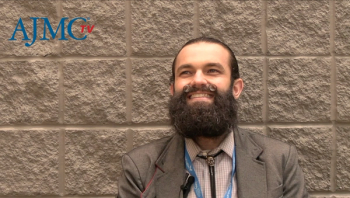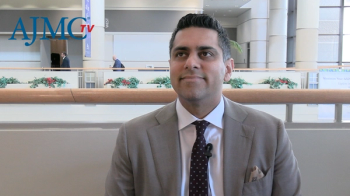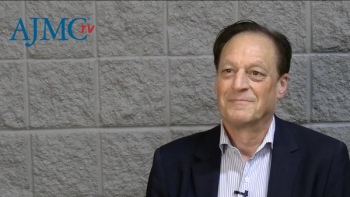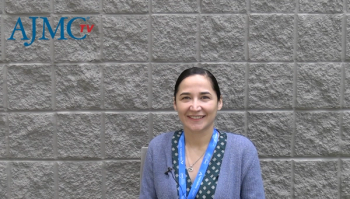
Here are our top highlights from AAD 2025 that include safety of topical JAK inhibitors, climate impacts on skin health, affordability of classic therapies, and advancing AI in dermatology.

Here are our top highlights from AAD 2025 that include safety of topical JAK inhibitors, climate impacts on skin health, affordability of classic therapies, and advancing AI in dermatology.

Crystal Aguh, MD, FAAD, Johns Hopkins School of Medicine faculty, advocates for increased funding and education to address hair loss disparities within the African diaspora, emphasizing the need for culturally sensitive treatment and research.

Elizabeth Jones, MD, FAAD, highlights the persistent issue of insurance companies favoring expensive, newer medications over equally effective generics in dermatology, emphasizing the time-consuming prior authorization process and advocating for patient partnerships and systemic improvements.

Steven Daniel Daveluy, MD, FAAD, discussed how artificial intelligence (AI) can leverage extensive patient data and guide dermatologists to improve early diagnosis and treatment of rare dermatological diseases through teledermatology.

The role of artificial intelligence, DataDerm, and telehealth in advancing dermatology care was discussed throughout the meeting, with experts highlighting their potential regarding patient access and health equity.

Experts discussed advancements in dermatology treatment while emphasizing the value of in-person collaboration and professional rejuvenation at the American Academy of Dermatology 2025 conference.

In an interview with Brittany Craiglow, MD, FAAD, dermatologist at Dermatology Physicians of Connecticut in Fairfield, she advocates for combination therapies using baricitinib to treat pediatric alopecia areata and highlights the need for personalized treatment approaches based on Janus kinase inhibitor responses.

Discussions centered on mitigating the financial burden of pediatric atopic dermatitis through financial aid programs and enhancing support for young patients to independently manage their condition were emphasized at this year’s 2025 American Academy of Dermatology meeting.

Steven Daniel Daveluy, MD, FAAD, advocates for dermatologists to adopt cultural humility, engage in continuous education, and navigate ethical considerations to provide equitable and supportive care to LGBTQ patients.

Experts stressed the importance of dermatologists engaging in climate advocacy and adopting sustainable practices, as their actions may inspire others to follow suit.

Shawn Kwatra, MD, FAAD, physician scientist at the University of Maryland Medical System, presented data at the American Academy of Dermatology 2025 annual conference on the rapid efficacy of topical ruxolitinib for itch and inflammation, while also outlining a comprehensive approach to chronic pruritus management.

Elizabeth Jones, MD, FAAD, Thomas Jefferson University Hospitals, advocates for teledermatology as a vital tool to enhance health care equity by improving access for underserved populations and reducing physician burnout.

Older, generic medications, including ones for cyclosporine, nicotinamide, and dapsone, can effectively treat patients with various dermatological conditions while helping to reduce insurance and cost barriers.

Brittany Craiglow, MD, FAAD, analyzed the promising use of baricitinib for severe pediatric alopecia areata. She highlighted late-breaking data from the BRAVE-AA-PEDS study (NCT05723198), emphasizing the balance between treatment efficacy and safety.

Lawrence Eichenfield, MD, FAAD, from Rady Children's Hospital and UC San Diego School of Medicine, highlighted the importance of shared decision-making in atopic dermatitis treatment, emphasizing personalized care based on patient history and the favorable long-term safety profile of topical ruxolitinib.

Two posters presented at the 2025 American Academy of Dermatology Annual Meeting reaffirmed the impact of ruxolitinib cream (Opzelura; Incyte) in atopic dermatitis (AD), while late-breaking research highlighted its potential efficacy in prurigo nodularis (PN).

Amid limited access to pediatric dermatologists nationwide, pediatric patients of color with atopic dermatitis (AD) are particularly affected by social determinants of health, further impacting their outcomes.

Rebecca Vasquez, MD, FAAD, University of Texas Southwestern Medical Center, emphasizes the necessity of addressing social determinants to improve dermatological care and access for underserved populations.

Martina Cartwright, PhD, RD, and Lawrence J. Green, MD, FAAD, both recommend the Mediterranean diet to reduce inflammation and manage some dermatological symptoms.

Thy N. Huynh, MD, FAAD, Bruce A. Brod, MHCI, MD, FAAD, and Melissa Piliang, MD, FAAD, discussed expanding access to pediatric dermatology, dermatology data aggregation, and advocacy for Medicare physician payment reform, respectively.

The 2025 American Academy of Dermatology (AAD) Annual Meeting introduces over 50 new sessions and debuts an opening ceremony, featuring a fireside chat with lifestyle expert and entrepreneur Martha Stewart.

Seemal R Desai, MD, FAAD, president of the American Academy of Dermatology (AAD), emphasized his commitment to enhancing the upcoming 2025 annual meeting by introducing new events and expanding educational offerings to better serve and engage members.

The 2024 American Academy of Dermatology conference was held in San Diego, California March 8 to 11.

Martin Dahl, PhD, of AnaptysBio discusses the findings and limitations of a study analyzing use of ANB032 in patients with atopic dermatitis (AD).

Monica Li, MD, medical and cosmetic dermatologist, explained the efficacy and safety differences between radiofrequency microneedling and traditional microneedling.

Lawrence Eichenfield, MD, chief of pediatric and adolescent dermatology at Rady Children's Hospital in San Diego, shared the implications of the findings from INTEGUMENT-PED, the phase 3 study assessing the efficacy and safety of once-daily roflumilast cream 0.05% in pediatric patients with atopic dermatitis (AD), for future clinical practice.

Robert Sidbury, MD, MPH, FAAD, division head of dermatology at Seattle Children's Hospital and professor of pediatrics at the University of Washington School of Medicine, discusses implementing value-based care initiatives in a pediatric dermatology practice.

Lawrence Eichenfield, MD, of Rady Children's Hospital - San Diego, discusses the implications of the findings from INTEGUMENT-PED, the phase 3 study assessing the efficacy and safety of once-daily roflumilast cream 0.05% in pediatric patients with atopic dermatitis (AD).

Monica Li, MD, medical and cosmetic dermatologist, listed microneedling considerations and precautions so that providers can safely implement the procedure.

Jonathan Silverberg, MD, PhD, MPH, FAAD, of George Washington University School of Medicine and Health Sciences, discusses atopic dermatitis (AD) diagnosis and treatment differences in children vs adults.

259 Prospect Plains Rd, Bldg H
Cranbury, NJ 08512
© 2025 MJH Life Sciences®
All rights reserved.
